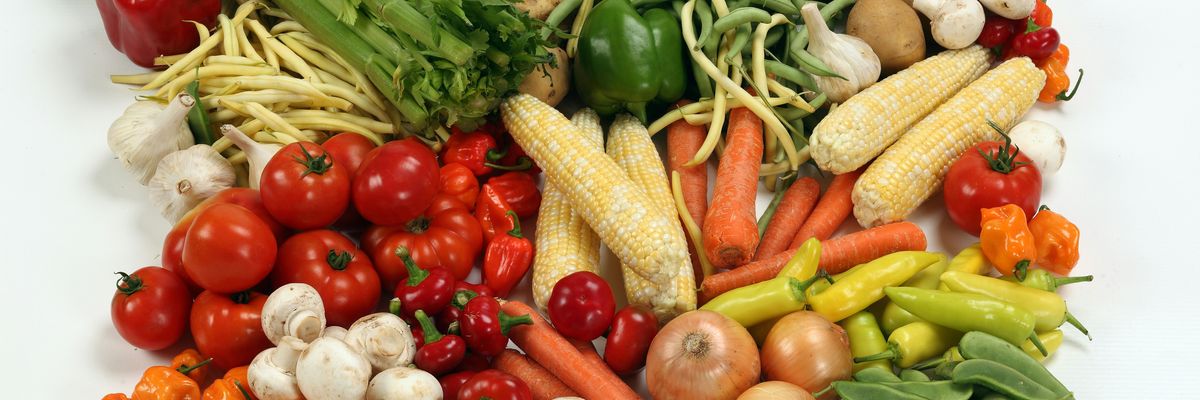Here’s a milestone I didn’t even envision when I founded the nonprofit Dion’s Chicago Dream: 1 million pounds of fresh fruits and vegetables purchased, packed, and delivered to people who didn’t have regular access to healthy food.
But that’s what the Dream Team has done, in just three-and-a-half ears, from a standing start as a brand-new organization. For us, it is a day of celebration: We rejoice and take pride in the fact that thousands of our Chicagoland neighbors are incorporating more healthy fruits and vegetables into their diets—and they speak of being healthier, both mentally and physically, as a result.
How do we know this? Every 15 days or so, we survey each of the households receiving our weekly Dream Deliveries of top-quality fresh produce. But don’t take our word for it. Our partners at the American Diabetes Association commissioned a study that found “participants stated that the produce boxes help them maintain or return to a healthier eating track, particularly by increasing their daily intake of fruits and vegetables. As a result, they reported better health outcomes such as reduced blood pressure, improved energy levels, better sugar level management for diabetics, and a sense of overall well-being.”
Apart from programs like ours that take the time to build trusting relationships with recipients, there doesn’t seem to be a lot of interest in understanding exactly who is food insecure and why, so there’s not a lot of understanding about durable solutions to the problem.
I founded Dion’s Chicago Dream because in our city, 1 in 5 households are at risk of food insecurity—they don’t have regular access to enough nutritious food for normal growth and development and an active and healthy life. We started with this vision statement: Ending food insecurity in Chicago so that every resident has consistent access to fresh, nutritious food.
I like bold vision statements as much as the next guy. But after working to get healthy food to people who need it for the past few years and finding a level of success that blows me away, I’m finding it increasingly difficult to envision an end to food insecurity, in Chicago or anywhere else in the country. After three-and-a-half years of hard work and innovation, we’ve made a big difference in some people’s lives, but the problem of food insecurity itself is as big as it ever was. I’m convinced that food insecurity cannot be solved as long as our country fails to treat consistent access to healthy food as a human right.
But while food insecurity cannot be solved, it can be managed—and that’s something I can see our society doing a lot better. As a Black man who grew up often hungry and sometimes homeless in the South Side neighborhood of Englewood—and as a Navy veteran who found himself homeless and hungry once again, after leaving the military—I understand the realities of food insecurity. I knew that if Dion’s Chicago Dream was going to make a difference, it was essential that we always put the needs of our recipients first.
For example, for a lot of the people in my neighborhood, getting to a faraway food pantry during opening hours is dangerous or unrealistic. So instead of asking recipients to come to us, we bring healthy food to people who need it. We started with a single Dream Fridge stocked with healthy food. Then we rolled out our flagship weekly Dream Deliveries of fresh produce, and our sprinter vans fanned out across the city. Then we developed network-enabled Dream Vaults, each of which can serve up to 175 families a week from a neighborhood store or other gathering spot.
We developed processes and procedures, built out infrastructure, and tracked metrics to hold ourselves accountable. As a result, we know not only how many pounds of produce we delivered, but also how the people who received that food feel about their deliveries, and what the effect on their lives has been. I believe food philanthropy—and the entire food sector—need to pay a lot more attention to tracking whether they’re truly making a difference in terms of supplying consistent and nutritious food, and to the physical and mental health effects of increased food security.
It’s frustrating: There’s more than enough food to feed everyone in the U.S. But the food distribution system is built for profit, not people, and nobody’s in charge of tracking who isn’t getting the healthy food they need, let alone figuring out and scaling up solutions. Apart from programs like ours that take the time to build trusting relationships with recipients, there doesn’t seem to be a lot of interest in understanding exactly who is food insecure and why, so there’s not a lot of understanding about durable solutions to the problem. That makes managing food insecurity much harder than it needs to be.
Food nonprofits and philanthropists have good intentions, but that’s not enough. We need to listen to the people we serve, focus on execution, and measure our results. We need to be willing to change and innovate, and to work for the day that as many people as possible have regular access to the healthy food we all need to thrive.

